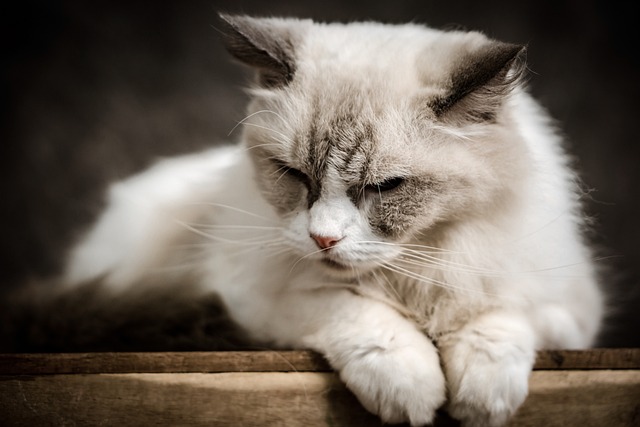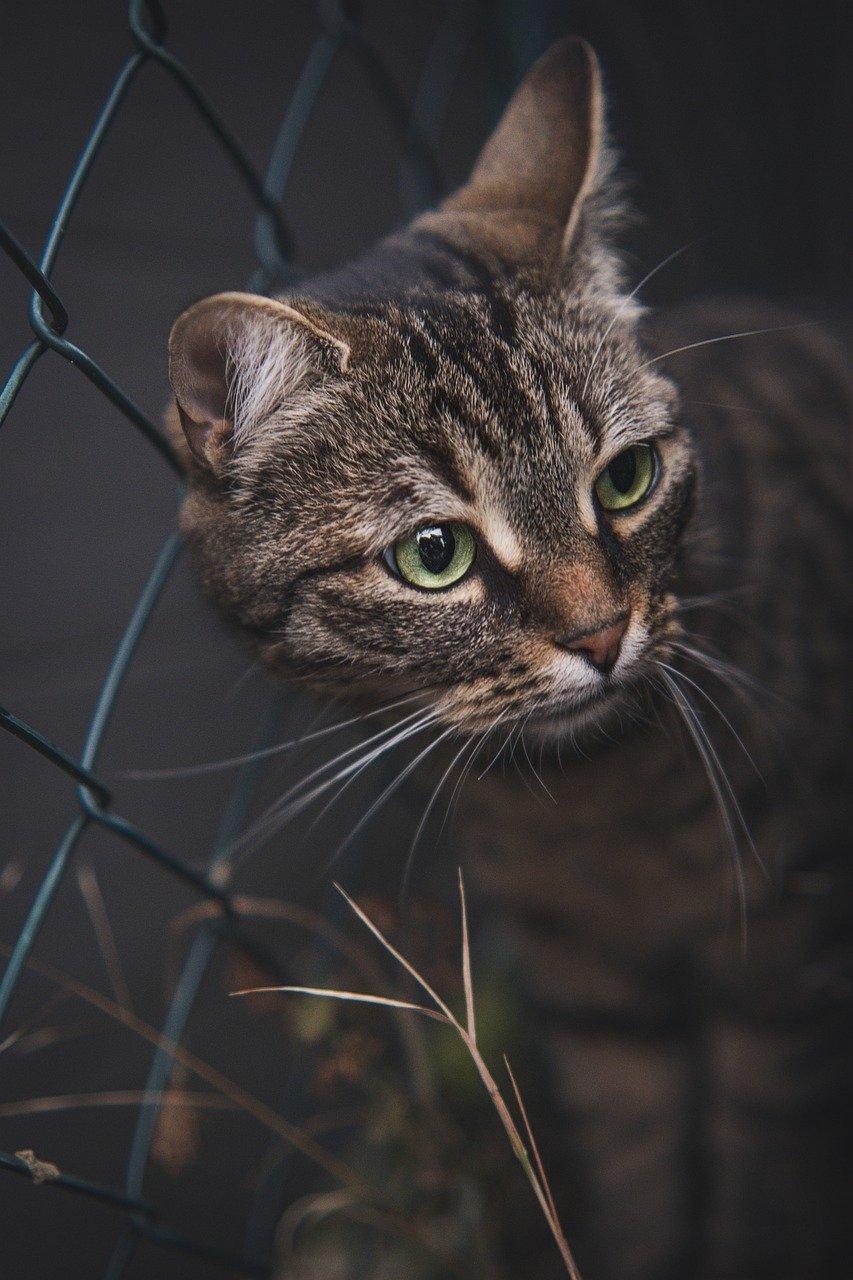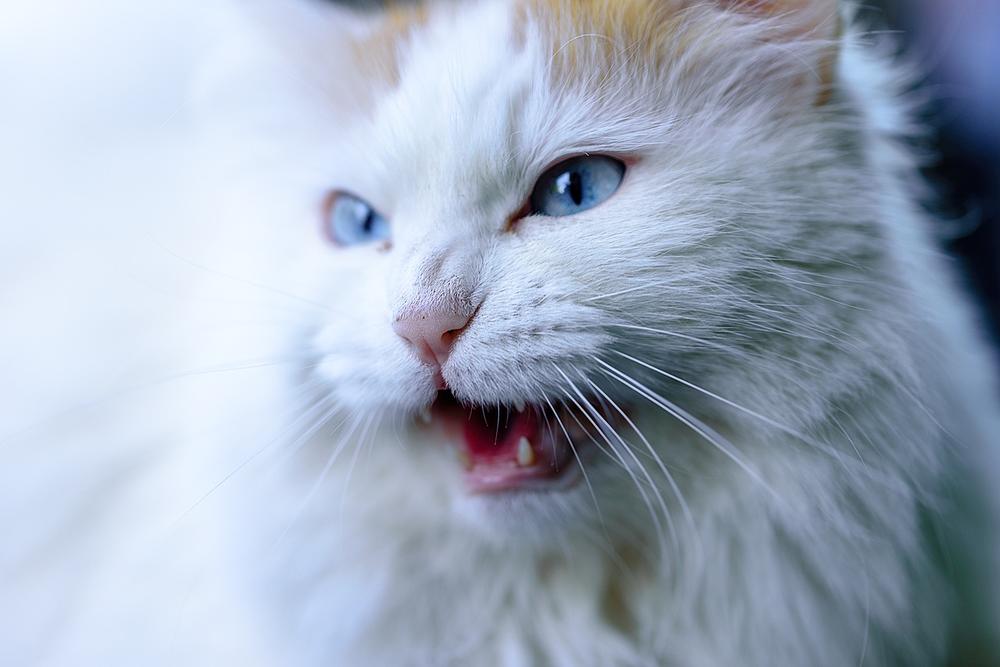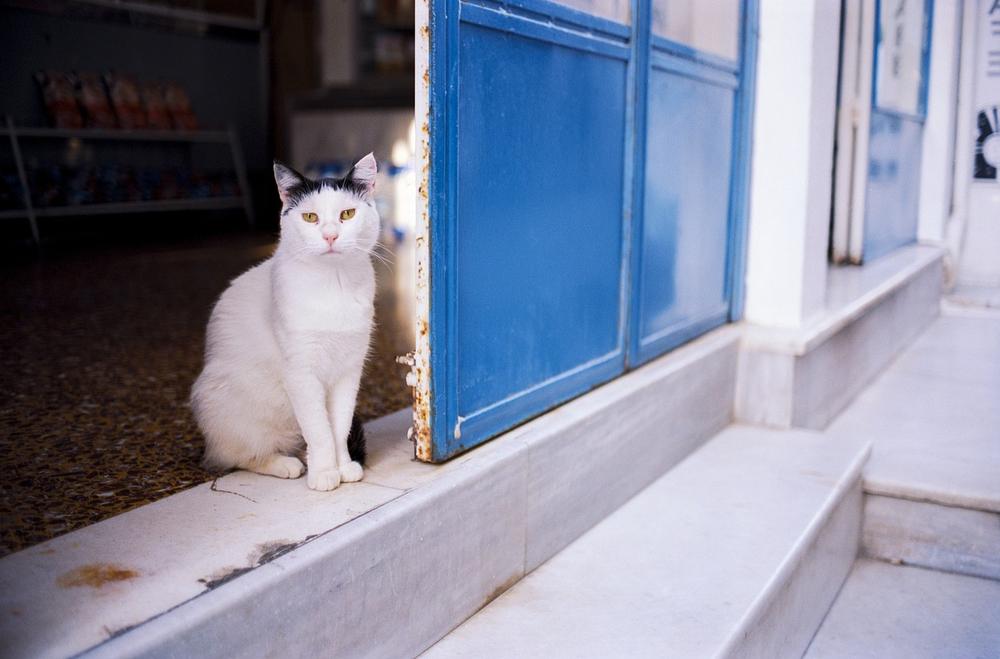Do Cats Feel Sadness? (& How to Help Them if They Do)

Tired of wading through those heartbreaking cat videos, desperately searching for answers?
Wondering, as you fall down the rabbit hole of feline sorrow, "Do cats feel sadness?" 😿
The void you feel, is all too familiar.
But fear not, together we shall embark on a quest for feline emotional enlightenment.
Let's dig in.
Can Cats Feel Sadness?
Cats, like humans, can feel sadness.

Here are 5 signs that your cat might be feeling down:
- Decreased appetite: If your cat is skipping meals or not eating as much as usual, it could be a sign of sadness.
- Changes in behavior: Is your cat hiding more often, avoiding interaction, or being less active? These changes in behavior could indicate sadness.
- Excessive grooming: Cats groom themselves as a way of comforting and soothing. However, if you notice your cat obsessively grooming or even over-grooming to the point of causing bald patches, it could be a sign of sadness or anxiety.
- Avoiding their favorite activities: Cats are creatures of habit. If your cat suddenly loses interest in playing with their favorite toys or refuses to engage in activities they used to enjoy, it might be a sign of sadness.
- Lack of energy: Just like humans, cats can experience a lack of energy when they're feeling sad. If your cat seems lethargic, uninterested, or unusually tired, sadness might be the culprit.
If you think your cat is feeling sad, try these strategies to help boost their mood:
- Spend quality time with them
- Offer stimulating activities and toys
- Provide a calm and comforting environment
- Consult with your veterinarian for further guidance
You play an essential role in your cat's well-being. By addressing their sadness, you can help bring joy back into their lives!
Recognizing the Signs of Cat Depression
Cats can get sad too, you know.
And when they do, they might do some weird stuff that tells you they're feeling down.

So how can you tell if your furry buddy is depressed?
Here's what to watch out for, my friend:
- Is their appetite off? Are they eating more or less than usual?
- Do they go overboard with grooming or neglect it altogether?
- Are they being anti-social? Acting all withdrawn and avoiding people?
- Do they spend a lot of time hiding away or seeking solitude?
- Are they sleeping longer or having trouble getting shut-eye?
- Have they lost interest in playing with their toys or participating in games?
- Are they acting clingy, aggressive, or just plain grouchy?
- Are they not as active and energetic as usual?
- Are they breaking away from their normal routines?
- Do they show any physical symptoms like signs of pain or discomfort?
If you spot any of these signs, it's best to take your cat to the vet so they can check things out and ensure everything's alright. 😺
And now, let's delve into the reasons why cats can experience sadness and potential triggers that may contribute to their emotional state...
Reasons for Cat Sadness
There are several reasons why cats may feel sadness, including:
- Major changes in their environment.
- Changes within the household.
- Grief from the loss of a companion animal or human family member.
- Illness or injury.
- Separation from humans.
- Stress caused by change.
- Boredom and lack of mental stimulation.
- Loss of a fellow pet.
- Long-term illnesses and injuries.
These factors can contribute to a cat's depression, limiting their engagement in activities and causing them pain.
To help your cat feel better:
- Provide a stable and familiar environment.
- Offer comfort and companionship.
- Ensure they have appropriate pain relief.
- Encourage play and mental stimulation.
- Seek veterinary care if needed.
Understanding your feline friend's emotions is crucial for their well-being.
With that being said, take the necessary steps to keep your cat happy and healthy!
And speaking of changes within the household, I want to address a common concern among cat owners.
If you've recently introduced a new kitten into your family, you may be wondering why your cat is feeling down.
That's why I wrote a blog post called Cat Depressed After New Kitten.
Trust me, you don't want to miss out on the insights I share in there.
Check it out, it might just shed some light on your feline friend's behavior.
Can Cats Sense Our Sadness?
Cats are incredible creatures.
They can pick up on even the tiniest changes in your voice or body language.
And guess what?
They can totally tell when you're feeling down.
You might be wondering, how do they do it?
Well, cats just have a natural talent for reading us like an open book...
A book we didn't even realize we were writing!
They pay attention to our movements, listen to the tone of our voice, and even analyze our facial expressions.
Talk about being observant!
When your mood shifts, cats are quick to notice.
They take all those subtle cues - the way you slouch or the sadness in your eyes - and put them together to understand what's happening inside you.

And here's the best part:
Cats respond to your emotions in their own special ways.
Some may cuddle up next to you, purring to bring comfort.
Others might gently tap you with their paw as if to say, "I'm here for you."
And let's not forget those adorable head bumps they give!
It's their little way of showing love and support.
So, don't be surprised if your furry friend comes over to help when you're feeling down.
Cats are more perceptive than you might think.
And if you're wondering more about cats and their emotional sensitivity, you'll want to check out my blog post on Do Cats Know When You Are Sad.
Explore the fascinating ability of cats to sense and recognize human emotions like sadness.
Dive into the topic and discover just how perceptive our feline friends can be.
Don't miss out on this insightful guide that will satisfy your curiosity.
How to Help a Sad Cat
Establish a consistent routine and provide stability
When it comes to helping a sad cat, having a consistent routine is super important. You know how cats are creatures of habit, right?
So, by setting up regular feeding times, play sessions, and sleep schedules, you're giving your feline friend the stability they crave.
Enrichment activities are key
To make sure your kitty doesn't get bored or down in the dumps, keep their environment interesting.
Get them some cool toys that tap into their natural instincts to hunt and chase.
Also, consider giving them opportunities to climb up high, like getting a cat tree or shelves. Oh, and don't forget about providing access to a window!
Cats love watching birds and squirrels outside – it's like their own TV show!
But hey, be careful when bringing in another furry friend...
Adding another pet might seem like a good idea to cheer up your depressed cat, but you need to back off for a while.
Give your cat some time to grieve and heal before considering introducing a new family member.
Trust me, rushing into it can just make things worse for everyone involved.
Shower your cat with love and attention
Right now, your cat needs all the love and care they can get from you.
Schedule some dedicated playtime and spend quality moments together. Petting them, offering their favorite treats, and snuggling up will do wonders for lifting their spirits.
And hey, don't underestimate the power of catnip toys...
They can really bring out the fun side of your four-legged buddy and make them happy.
If you notice any signs of long-lasting sadness, stress, or health issues in your cat, it's always best to seek help from a vet or ask for advice on changing their routine.
These professionals have the expertise to give you personalized guidance based on your cat's specific situation.
The Emotional Well-being of Feline Companions
Key takeaways:
- Cats are capable of feeling a wide range of emotions, including sadness.
- Signs of cat depression include changes in behavior, appetite, grooming, and social interactions.
- Understand a cat's emotions through their body language and behavioral changes.
- Common signs of a sad cat include changes in appetite, sleep, grooming, and hiding behavior.
- Cats can become depressed due to various reasons, such as changes in the household or illness.
- Long-term illnesses and injuries can contribute to a cat's depression.
- Cats can sense and recognize human emotions and mirror their owners' emotions.
- Cats can provide emotional support by displaying loving behaviors.
- To help a sad cat, provide extra attention, consistency, and enrichment activities.
- Seek veterinary intervention if signs of depression, stress, or illness persist.
And that wraps up today's article.
If you wish to read more of my useful articles, I recommend you check out some of these: Can a Pregnant Cat Mate Again, How Long Does It Take for Cat Mother to Forget Her Kittens, and Cat Destroying Furniture
Talk soon,
-Sarah Davis